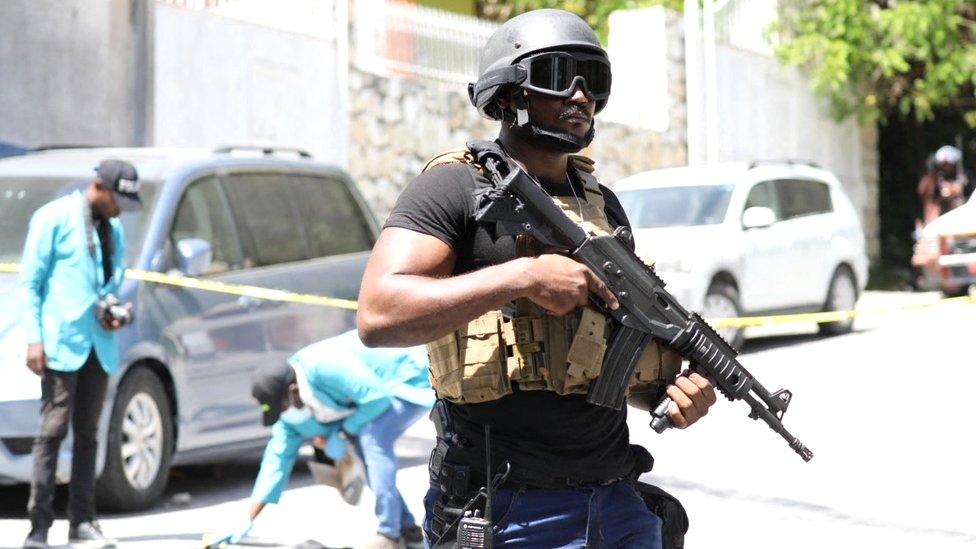Haiti PM sacks justice minister amid murder inquiry
- Published
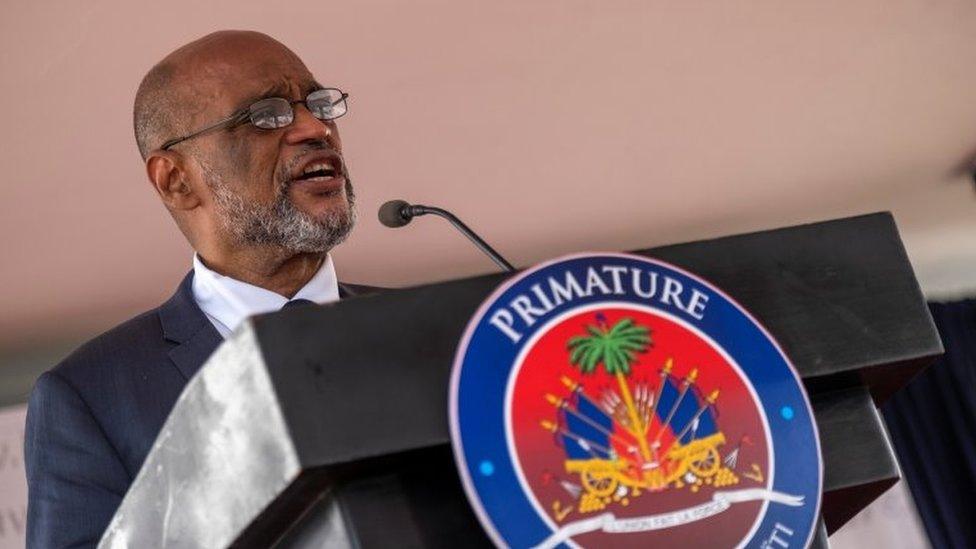
Ariel Henry was nominated as prime minister by Jovenel Moïse two days before the president was killed
Haiti's Prime Minister Ariel Henry has sacked the justice minister after the latter backed a prosecutor who sought charges against Mr Henry over the murder of President Jovenel Moïse.
The government is in disarray after another senior official resigned saying that he would not work under a prime minster "who had come under suspicion for the murder of the president".
Mr Henry has not commented on the allegations.
Mr Moïse was shot dead on 7 July.
Gunmen stormed his residence in the suburbs of the capital, Port-au-Prince, and killed him and injured his wife.
Police say they have arrested 44 people - including 18 former Colombian soldiers - in connection with the killing but the investigation into who may have ordered the killing continues.
The investigation took a dramatic turn last week when prosecutor Bed-Ford Claude sent a letter to Prime Minister Henry asking to discuss phone records he said showed Mr Henry had phone conversations with one of the key suspects just hours after the president was killed.
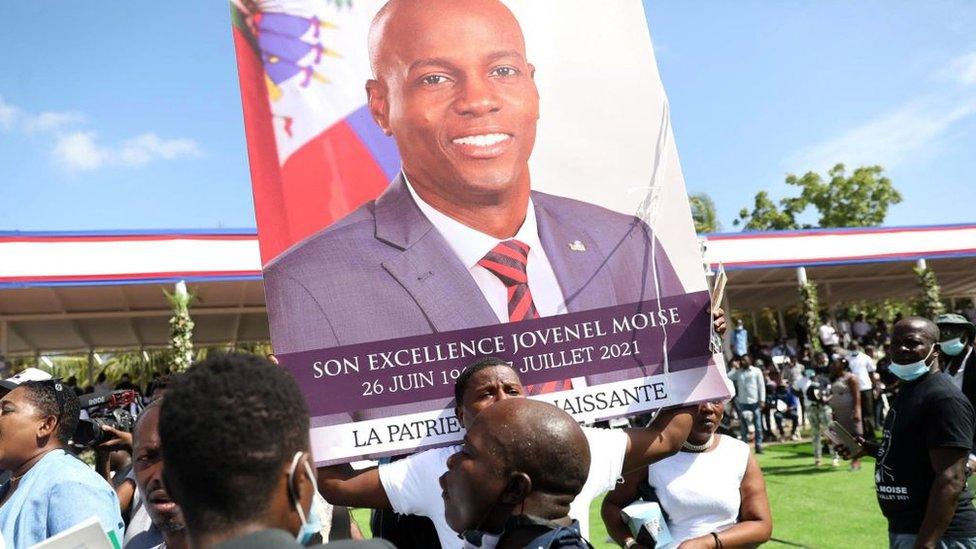
President Jovenel Moïse was shot dead at his residence on 7 July
The suspect - former justice official Joseph Felix Badio - is suspected of having given the order to the Colombian gunmen to kill the president. He remains on the run.
Prime Minister Henry did not comment on the phone conversations except to say that "no distraction, no summons or invitation, no manoeuvre, no threat, no rear-guard combat, will distract me from my mission".
Sackings and resignations
On Monday the prime minister went on the offensive when he tried to dismiss the justice minister, the secretary of Haiti's Council of Ministers (the equivalent of the cabinet in Haiti) and prosecutor Bed-Ford Claude.
A letter signed by Mr Henry accused Mr Claude of "serious administrative errors".
However, all three men continued working on Tuesday amid confusion over whether the prime minister had the power to fire them.
Prosecutor Bed-Ford Claude launched a counter-offensive asking the judge investigating the Moïse murder case to charge Mr Henry over his alleged involvement in the president's killing.
But legal experts in Haiti say the prosecutor's request came too late. They argue that a prosecutor cannot ask for charges to be issued once the investigation has been handed over to a judge, which had happened in this case.
Winners and losers
On Wednesday, the Prime Minister appeared to have got his way when decrees ordering the replacement of both the justice minister, Rockfeller Vincent, and that of the secretary-general of Haiti's Council of Ministers, Renald Luberice, were published in the official gazette.
But Mr Luberice did not go quietly. In a letter to the Council of Ministers, Mr Luberice said he had stood down because he could not remain in his post "under the leadership of a person who was nominated by Jovenel Moïse, accused over his murder and who won't co-operate with the judiciary".
Prime Minister Henry scored another victory when diplomats from the US, the UN and elsewhere backed his efforts towards "allowing the establishment of an inclusive government".
But a bitter fight over who should lead the country until elections can be held continues to brew.
The leader of the Senate, Joseph Lambert, tried to have himself sworn in as interim president late on Tuesday but he said that he was prevented from entering the parliament building by people firing shots at its windows.
It is not clear how much support Mr Lambert has beyond a small number of senators, who backed his claim to the presidency in the days after President Moïse's killing.
Related topics
- Published14 September 2021
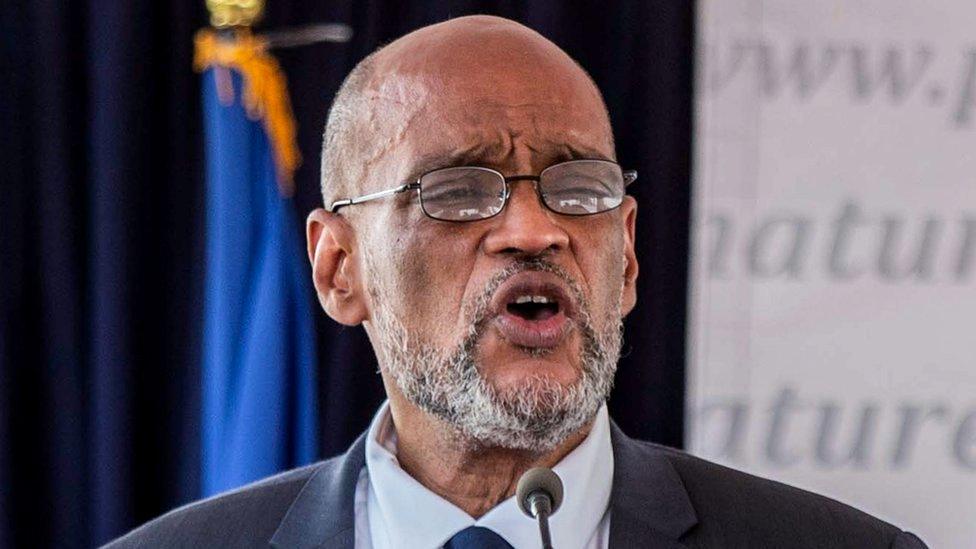
- Published11 September 2021
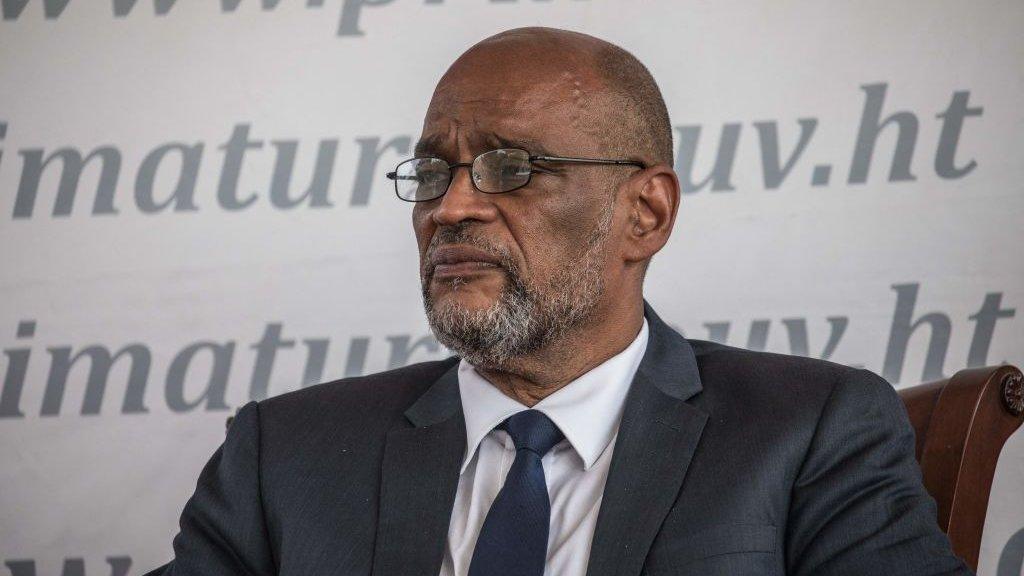
- Published9 July 2021
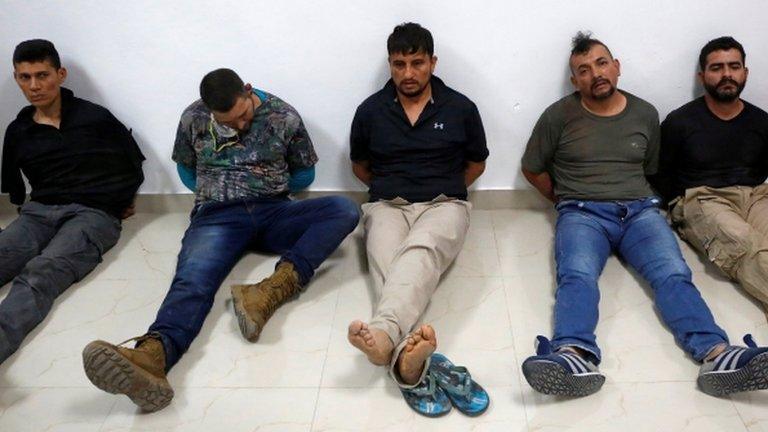
- Published8 July 2021
